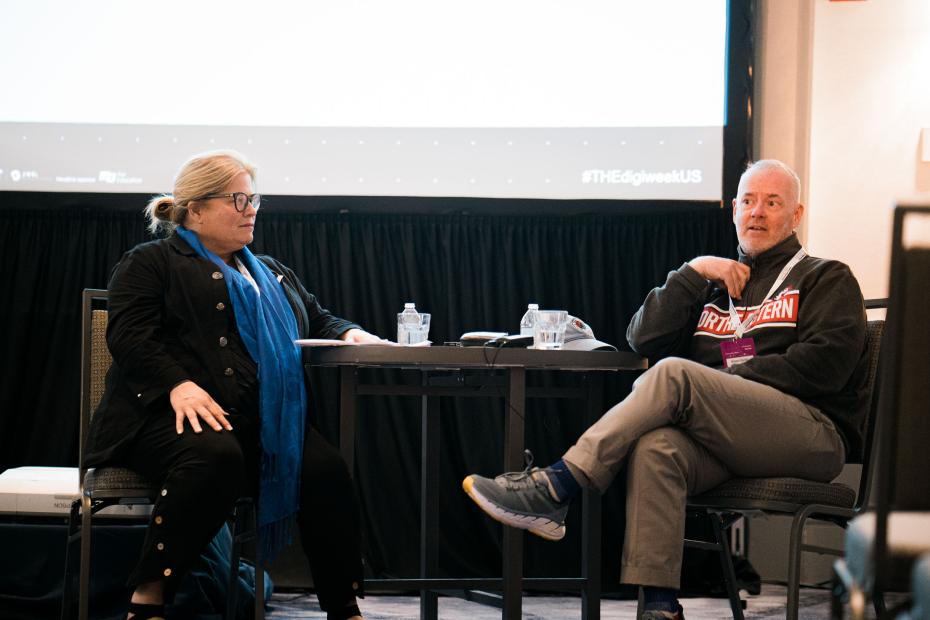Rising living costs impact every aspect of student life, including studies, social lives, health and well-being. A 2023 survey of Russell Group students found that 94 per cent had concerns about the cost of living, one in four regularly went without food and other necessities and more than half had stopped participating in extracurricular activities.
The challenges are compounded by the government’s failure to raise maintenance loans in line with inflation; students accessing the maximum loan are now almost £2,000 worse off than if loans had kept up with inflation since 2021.
Universities are stepping up to help as much as they can, but it can look like an overwhelming problem to tackle. Drawing on some of the most impactful projects we have seen, here are some key principles for effective student support.
Cash is often king
There is a significant gap between the real cost of university and the government support available. And with parental earnings thresholds frozen since 2008, the assumption that parents can top up the difference simply isn’t feasible for many families. Direct cash assistance is one of the most effective ways to help people: it’s simple to implement, and students can choose how to spend it to meet their needs.
Universities should therefore prioritise hardship funds and bursaries where they can and offer targeted support for their most vulnerable groups. But remember that this vulnerable group is growing as middle-income students also feel the squeeze. Some universities have responded by broadening the criteria for guaranteed support, which, at Queen Mary University of London, resulted in 39 per cent of undergraduates being automatically awarded the Queen Mary Bursary.
It’s also beneficial to make hardship funds available throughout the academic year, not just when students enrol. Even a small grant can keep a student afloat if something unexpected happens – an accommodation problem, a broken laptop or an emergency dentist’s bill – so flexible financial support can make a big difference, preventing students from taking on unnecessary and dangerous debt.
Look beyond the essentials
Financially disadvantaged students can miss out on many aspects of the student experience, widening the existing disadvantage gap. If a student is worried about how to pay a gas bill, they’re probably not going to pay for a gym membership or upgrade their old laptop. Universities should think creatively about where they put funding to enhance different aspects of the student experience.
A fantastic example of this is the University of Warwick’s long-running “Rock Up & Play” programme, which offers free opportunities to get involved in sports and has welcomed more than 2,300 participants so far this academic year. Open to the university’s student and staff community and covering a wide range of sports including swimming, netball, dodgeball, squash, trampolining, ultimate frisbee and even esports, the programme removes the financial barriers to participating in organised sport, enabling all students to enjoy the associated health and social benefits. There are inclusive options, such as walking football, sensory-friendly table tennis and women-only sessions, and some are also open to the local community at a low cost.
UCL and the University of Edinburgh also operate successful activity and participation grants which allow students to benefit from extracurricular activities, while the University of Southampton offers a technology grant and the University of Manchester provides a work experience bursary.
- Resource collection: Helping students through the cost-of-living crisis
- Creating safe spaces for students to talk about financial difficulties
- Making higher education accessible for students with unmet financial need
Team up with your students
Universities should not make these decisions at the senior level alone. Students give vital insights into where support is most needed, and how it can best be delivered.
Some of the most successful schemes involve cooperation between universities and their student unions. When Queen’s University Belfast teamed up with its students’ union to mitigate the impact of the cost-of-living crisis, the result was a food pantry donating more than 50 types of food and other essential products, which so far has been accessed more than 11,000 times since September 2023, and given out more than 2,500kg of rice and 1,000kg of pasta. It includes a kitchen for students to cook meals on site to reduce spending on cooking equipment and energy, and has won praise from students for providing foodstuffs – “It’s great for things like spices so you can experiment with recipes without the expense,” said one student – as well as employment opportunities: “I work in the pantry so not only does it provide me with income, I also get my pasta and herbs every week!” said another.
Don’t think you can solve all the problems on your own
Russell Group universities collectively spend tens of millions on additional support, and there is much that the sector can continue to do to help. However, this is a systemic issue, and not one that universities can solve alone.
One of the strengths of UK universities is their ability to embed themselves into the local community, providing many opportunities for effective partnerships that deliver well-rounded support. This could be working with local allies on safe and affordable housing – like in Durham, where Durham University and its student union teamed up with their local MP, parish and county councils to lobby government for student housing support – negotiating meaningful student discounts on your city’s transport networks or ensuring students can access health and well-being services both on and off campus.
Universities can also use their collective voices to push for wider systemic changes. We are urging government to not only reassess student maintenance loans, uplifting them in line with real and historic inflation rates, but to re-establish maintenance grants and review the parental earnings thresholds that determine loan amounts. Combining local university projects with a solid bedrock of government-backed support is the way to ensure effective, holistic support for students who have been a vulnerable but often overlooked casualty of the cost-of-living crisis.
Maddy Godin is a policy researcher (higher education) at the Russell Group.
If you would like advice and insight from academics and university staff delivered direct to your inbox each week, sign up for the Campus newsletter.




comment